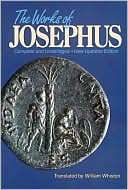First century Christians were not unique in their use of ‘gospel’ language. In fact, this word group (which exhibits the εὐαγγελι- stem in Greek) actually comes into several connections in ancient literature. For instance, in his Jewish Wars, Josephus records the following:
So the men of power, perceiving that the sedition was too hard for them to subdue, and that the danger which would arise from the Romans would come upon them first of all, endeavored to save themselves, and sent ambassadors; some to Florus, the chief of whom was Simon the son of Ananias; and others to Agrippa, among whom the most eminent were Saul, and Antipas, and Costobarus, who were of the king’s kindred; and they desired of them both that they would come with an army to the city and cut off the sedition before it should be too hard to be subdued. Now this terrible message was good news [εὐαγγέλιον] to Florus; and because his design was to have a war kindled, he gave the ambassadors no answer at all ( Josephus, Jewish Wars 2.418–20).
This ‘good news’ was actually only ‘good’ for Florus. The emissaries and those who sent them would have had, to say the least, quite a different perspective on the matter. This usage, consequently, highlights a very general application of ‘gospel’ language to something with which someone happens to be pleased, irrespective of what other people’s assessments might be.
In this post:[caption id=“attachment_2018” align=“alignleft” width=“80” caption=“Flavius Josephus”]  [/caption]
[/caption]